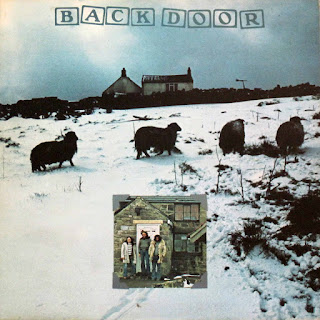 The art of arranging
sounds in time so as to produce a continuous, unified, and evocative
composition, as through melody, harmony, rhythm, and timbre.
The art of arranging
sounds in time so as to produce a continuous, unified, and evocative
composition, as through melody, harmony, rhythm, and timbre.
Or:
Vocal
or instrumental sounds (or both) combined in such a way as to produce
beauty of form, harmony, and expression of emotion.
Or:
The hidden arithmetical exercise of a soul unconscious that it is calculating Leibniz (a contemporary of J.S. Bach)
What Is Music? Where does the
border between music and sound lie? Is there something other worldly or
mystical about music? Can music create altered states of perception, or
the possibility of experiencing these? How is music the language of us
all? What is music’s place in a rational, scientific culture? What is
the value of music?
All these questions deserve some updated answers...
John
Cage thought that any sound can be music: He said that,'There is no
noise, only
sound' in an attempt to make us aware of the musical possibilities
contained in the sounds and acoustic spaces that surround us all day
long.
The process of composing music, for me, is a game. Given one or two seed ideas, it then becomes a matter of copying and pasting, starting with something quite simple and then using this to build a piece that has enough twists and turns to become musically interesting and satisfying. It's a minimalist approach as the fragments that I copy and paste become repetitive and layered, perhaps distributed among the different instrument parts in overlapping ways. The game is to make it work as a whole. Even the most simple musical fragment can quickly become uncontrollably complex so, I suppose, the craft is in maintaining the simplicity while adding in the interest.
The history of modern art, from impressionism to contemporary abstractions, is particularly useful for inventing associations with musical ideas. The closest I can get to relating my copy-and-paste method with a visual form is that of the cut-out-and-pasted pictures made by Henri Matisse in his later years. His quite crude juxtapositions of colours and shapes, collaged together are often abstract, sometimes more figurative, sometimes somewhere in between. Whatever, they are all expressions of an inner artistic force or experience.
I like having a title first. That seed brings forth musical expression; sucks inner experience into the outside world to become the building blocks dropped into my computer software. I had always thought of this particular composition process as simple and naive in a childish way - a child could have done it. But I value composing like this as something not to move on from having learned how to do it, but on which to focus more, to value and to hone. It makes inventing or purloining titles, then composing, a pleasure; not a chore. All I am doing is playing the game.
If you'd like to listen to one or two samples: billanderton.uk/compositions.html
Camille Saint-Saëns (1835-1921) is credited with introducing the genre of descriptive orchestral work to France and many people will be familiar with, for example, the spooky depiction of death, Danse macabre, used as the signature tune for the Jonathan Creek TV series. You'll find a selection of these symphonic poems recently published on Naxos.
 I like the idea of having a title which will attach itself to the music. Danse macabre is so much more helpful to the imagination than Symphonic Poem, No. 3. With the title, the music is a danse macabre, without it's an abstraction that could equally be a depiction (to me) of an unkind practical joke, or a crime with a funny side; or - and nothing wrong with this - just a piece of music. Don't get the idea that I need a title before a piece of music will come alive in the imagination. It can help, it works, and may be a way in to appreciating the music more fully, or of getting to grips with contemporary music which has no easy way in.
I like the idea of having a title which will attach itself to the music. Danse macabre is so much more helpful to the imagination than Symphonic Poem, No. 3. With the title, the music is a danse macabre, without it's an abstraction that could equally be a depiction (to me) of an unkind practical joke, or a crime with a funny side; or - and nothing wrong with this - just a piece of music. Don't get the idea that I need a title before a piece of music will come alive in the imagination. It can help, it works, and may be a way in to appreciating the music more fully, or of getting to grips with contemporary music which has no easy way in.
When it comes to writing, rather than listening, I like to have a title in mind before a single note has been written. The title works for me as an imaginative seed. I'm finding that the somewhat open-ended titles given to the poems and pictures of the Symbolist movement are particularly effective as the launch point for a new piece. How about: On the Manner of Addressing Clouds; or, Hymn from a Watermelon Pavilion; or, A Postcard from the Volcano; or, Two Figures in Dense Violet Night. I particularly like the last two. All of these are titles of poems by the symbolist poet, Wallace Stevens (1879-1955) from his anthology, Harmonium, a sufficiently musical title in itself.
I just spent a few days up north and was reminded of a pub I visited from time to time many years ago on the N. York. moors on Blakey Ridge close by Rosedale. It's a beautiful place in the summer and bleak in the winter. On the ridge is the 'pub at Blakey', or more precisely the Lion Inn. Two out of three of the band who played there are dead now, but their first album was my first truly great one. I had progressed somewhat, musically speaking, since an opening vinyl purchase featuring Adge Cutler and the Wurzles, a statement surely worthy of an exclamation mark. Back Door came soon after.
There's a vogue these days for virtuoso electric bass players, but, I'm guessing, the bass player in this band was the first to turn his instrument into bass, rhythm and lead all in one and without any overdubs, too. Back Door were Ron Aspery, Alto and Soprano Sax and Flute; Colin Hodgkinson, Fender Bass; Tony Hicks, Drums. Their jazz-rock style is infused with furiously fast melody lines played in unison on all three instruments, contrasted with atmospheric slowies that invoke the bleak moorland and the sheep outside the lonely pub's back door.
My vinyl of Back Door is playable but noisy in the way that vintage vinyl is, so their music was well worth the media change to CD. (I prefer CD, not download, btw, with its insert from the original album cover. I'll still play the vinyl version from time to time.) This is music from the early seventies so, if you are a contemporary music type, just keep in mind that this is well past the time of Stockhausen, who all of us are trying still to get to grips with. I'm not easily thrilled by music these days. This music continues to do it for me.
It's possible that the mistake Back Door made was signing with Warner Brothers when they had an early offer from the virgin Virgin Records who were then just about to make it big and take many new bands with them. Back Door had their day in the lime light though and deserve to be revisited; as is the Lion if you are ever passing that way.




